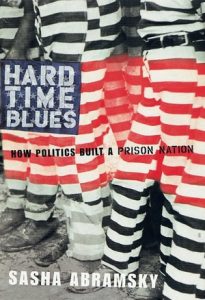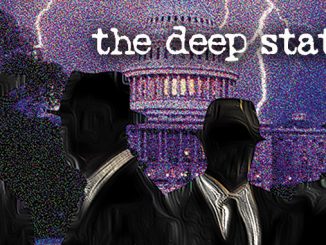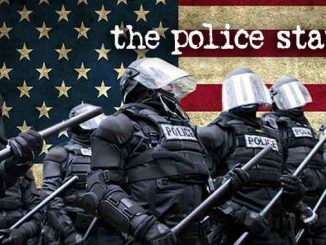
Communist China imprisons half of what the United States currently jails—over 2 million people incarcerated in America today and over 4.5 million on probation or parole—yet we are told it is China that’s the “harshly prosecutorial” state. Prison reform movements in the U.S. are working to change the state of affairs in this “land of the free.”
By S.T. Patrick
In a country that boasts both the largest per capita and total prison populations in the supposedly civilized world, Americans have taken up the cause of prison reform in numbers greater than ever before. Commensurate with the framing of most political issues, reformers are both radical and moderate—yet their political skins have encompassed both liberals and conservatives. One of the more creative movements to arise from this current wave of prison reform activism is the Prison Abolition Movement.
According to Bureau of Justice statistics, there are over 2 million people incarcerated in America today and over 4.5 million on probation or parole. Compare that with the next two countries. The largest country in the world is China, with 1.4 billion people. Its prison population is half that of America, yet China is seen as a harshly prosecutorial country where imprisonment can occur for the slightest wrong. Russia is third-highest with over 800,000 imprisoned. There is sizeable drop to fourth-place Brazil, with over 300,000 incarcerated. To put the per-capita evaluation into perspective, America incarcerates 737 of every 100,000 people. China incarcerates 118 of every 100,000.
Organizations such as Critical Resistance and the California Coalition for Women Prisoners push to dismantle what they call the “Prison-Industrial Complex,” or PIC. The majority of the Prison Abolition Movement seeks not to open bars and allow inmates to filter onto every street, nor does it intend to put the public at harm. What it acknowledges is that, even after decades of massive prison-system expansions, we are not safer as a country. If the overall goal is not being met, then the structure of the system needs to change. When that is acknowledged, the abolitionists believe, it is time to eliminate prisons in favor of more humane and effective systems of correction and rehabilitation.

Americans are used to the ineffective means of imprisonment—cages and control. It is still a nation of quick-judgment artists. TV judge programs, after all, are some of the most lucrative franchises in syndicated television today. Americans are attracted to shows where the passing of judgment is swift. We are stimulated by the opportunity to quickly vote someone off an island, pass judgment on talk-show guests, and yes, even fire employees on national television. Real life, however, is not simple, and its effects do not end as credits roll an hour later.
Reformers are not abolitionists. Reformers attempt to find answers regarding methods to make imprisonment more effective. Abolitionists believe that caging a human being is a moral wrong that hurts society more than it increases safety.
No amount of imprisonment has solved the initial problems, including inadequate access to education and opportunities, the increase of single-parent homes, addiction, societal insecurity or lack of treatment for mental illness. However, a blind trust in imprisonment has increased the problems of politicized punishment, an epidemic of poor legal representation by public defenders, broken families, children without parents, bloated state budgets, class inequities in punishment, and the covering up of officer-on-inmate violence.
Darren Rainey was a mentally ill inmate under the care, custody, and control of the notorious Florida Department of Corrections until on-duty officers burned Rainey to death on June 23, 2012. Rainey was thrown into a scalding shower by the officers as punishment. The water temperature—controlled by the officers—topped 180 degrees and melted Rainey’s skin from his bones as he begged them to stop. Though it was clear the guards committed the horrible act, Miami-Dade State Attorney Katherine Fernandez Rundle’s office announced that the four officers overseeing the gruesome murder would not be charged with a crime.
It is a natural defense to fortify societal norms with the “Then what do we do?!” argument. It is also natural to use the worst criminals and the worst crimes to make the argument for imprisonment. But if you disregard the worst 5% for the moment, the remaining 95% deserve a better path to change. Rehabilitation is touted but rarely accomplished.
The prison abolitionists believe that true rehabilitation cannot occur locked behind bars, as a tyrannical security corps treats the inmate as less than human. They believe true rehab should be enacted with one’s family or a team of supporters in an environment that is familiar, such as an offender’s community. The method commonly used and advocated for in America today clearly isn’t working when measured against any of the myriad goals expressed by the citizenry or by government officials.
If America is going to change its definition of reform, rehabilitation, and treatment, it will take a sea change—as it did with the marijuana decriminalization movement. When it does happen and those who have failed are seen as projects rather than objects, society will be better for it.
S.T. Patrick holds degrees in both journalism and social studies education. He spent ten years as an educator and now hosts the “Midnight Writer News” Show. His email is [email protected].




I can agree that the prison system is a money machine and citizens are jailed for minor infractions but to compare ours with china and russia is not apples to apples. Work camps are the norm in those countries, it is punishment. Rights are not given to those prisoners.